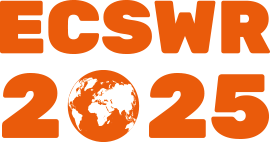CATHERINE DUROSE
TOPIC:
CO-PRODUCING RESEARCH: MAGICAL, TYRANNICAL OR TRANSFORMATIONAL?
BIO
Catherine Durose is Professor of Public Policy and Co-Director of the University of Liverpool's Heseltine Institute for Public Policy, Practice and Place. Recognised as a leading expert in urban governance and public policy, Catherine is particularly well-known for her work on co-production, how bringing together different forms of expertise can provide an innovative means of addressing complexity, contestation and uncertainty. She has written for Nature on how the academy can better acknowledge and embrace co-production. She is now Co-Lead of the Co-Production Futures Inquiry funded by Research England, which brings together key stakeholders to deliberate on how the UK higher education sector may be better aligned and organised to enable meaningful co-production of research.
Catherine was the recipient of the Joni Lovenduski Prize for Outstanding Professional Achievement in a Mid-Career Scholar in 2020, awarded by the UK's Political Studies Association. In 2024, she was elected as a Fellow of the Academy of Social Sciences.
ABSTRACT
The disarmingly simple idea of addressing complex societal challenges through bringing together the different relevant expertise of those with a stake in addressing a given issue is at the heart of co-production's appeal. It is a concept having a moment, and is increasingly used by universities, funders and others in the higher education sector to articulate a vision for how research should be conducted. Is co-producing research a 'magical' but over-claimed for solution to the challenges we face as scientists and as a society, does it risk becoming a 'tyranny', a way of working researchers are now expected to pursue but shorn of its initial radical intent, or is there scope to fulfil co-production's transformational potential by addressing the gap between the rhetoric that surrounds it and our own institutional environments?


